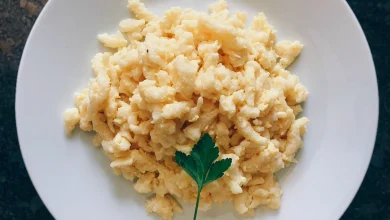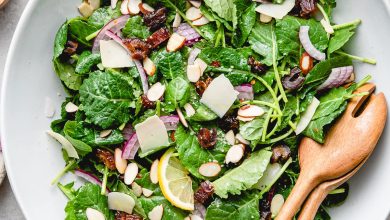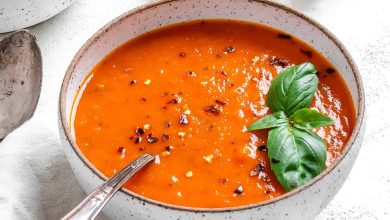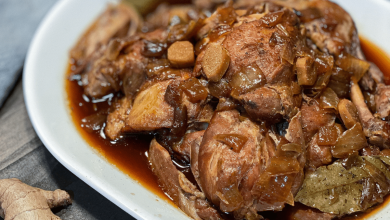🌱 Asparagus, so Easy It’s Silly! 🌱
What is it?
Asparagus is a delightful and nutritious vegetable known for its tender spears and unique flavor. It belongs to the lily family, and its scientific name is Asparagus officinalis. This perennial plant is prized for its young shoots, which are commonly eaten as a vegetable.
History:
Asparagus has a rich history that dates back to ancient times. It was cultivated by the Egyptians, Greeks, and Romans, who believed it had medicinal properties. In fact, it was considered a delicacy and believed to have aphrodisiac qualities by the Romans.
Components:
Asparagus is a low-calorie vegetable that is packed with essential nutrients. It’s an excellent source of vitamins (particularly A, C, and K), folate, and dietary fiber. Asparagus is also rich in antioxidants and provides important minerals like potassium and iron. Additionally, it contains asparagine, an amino acid that gives asparagus its unique taste.
Steps to Prepare Asparagus:
Preparing asparagus is quite easy, as you mentioned. Here’s a simple guide:
-
Select Fresh Asparagus: Look for firm, vibrant green spears with tightly closed tips. Avoid any that appear wilted or have a strong odor.
-
Wash and Trim: Rinse the asparagus under cold water to remove any dirt. Then, trim the tough, woody ends. You can snap them off where they naturally break or cut about an inch from the bottom.
-
Cooking Methods: Asparagus can be prepared in various ways, such as roasting, steaming, sautéing, or grilling. Here’s a basic method for roasting:
- Preheat your oven to 425°F (220°C).
- Toss the trimmed asparagus with olive oil, salt, and pepper.
- Spread them in a single layer on a baking sheet.
- Roast for about 12-15 minutes, depending on thickness. They should be tender and slightly crispy.
-
Seasoning: Get creative with seasonings! You can add lemon zest, garlic, Parmesan cheese, or balsamic vinegar for extra flavor.
-
Serve: Asparagus can be served as a side dish, in salads, or as a component of various recipes. It pairs wonderfully with a wide range of proteins and other vegetables.
Time Needed:
The time needed to prepare asparagus depends on the cooking method. Roasting, as mentioned above, takes about 12-15 minutes. Steaming typically takes around 3-5 minutes, while grilling may take 5-10 minutes. These times may vary based on the thickness of the asparagus spears.
In summary, asparagus is a nutritious and versatile vegetable with a history that stretches back millennia. It’s easy to prepare and can be a delicious addition to your meals. Happy cooking! 🍽️🌿👩🍳
Absolutely! Here are the nutrition facts and health information for asparagus:
Nutrition Facts (per 100 grams of cooked asparagus):
- Calories: 20
- Protein: 2.2 grams
- Carbohydrates: 3.7 grams
- Dietary Fiber: 2.1 grams
- Sugars: 1.9 grams
- Fat: 0.2 grams
- Vitamins and Minerals:
- Vitamin A: 20% of the Daily Value (DV)
- Vitamin C: 15% of the DV
- Vitamin K: 57% of the DV
- Folate: 17% of the DV
- Iron: 8% of the DV
- Potassium: 5% of the DV
Health Information:
-
Low in Calories: Asparagus is a low-calorie vegetable, making it a good choice for those looking to manage their weight.
-
Rich in Fiber: It contains dietary fiber, which is important for digestive health and can help with feelings of fullness.
-
High in Antioxidants: Asparagus is rich in antioxidants, including vitamin C and E, which help combat free radicals and reduce oxidative stress in the body.
-
Good Source of Vitamin K: Vitamin K is crucial for blood clotting and bone health. Asparagus provides a significant amount of vitamin K.
-
High in Folate: Folate is important, especially for pregnant women, as it aids in cell division and the development of the neural tube in developing fetuses.
-
Contains Iron: Asparagus contains some iron, which is essential for transporting oxygen in the blood.
-
Low in Fat: It’s virtually fat-free, which makes it a heart-healthy option.
-
Low in Sodium: It’s naturally low in sodium, which is beneficial for individuals watching their salt intake.
-
Potential for Diuretic Effect: Asparagus contains an amino acid called asparagine, which may have a mild diuretic effect, aiding in the removal of excess salts and fluids from the body.
In summary, asparagus is a nutrient-rich vegetable with a variety of health benefits. It’s an excellent source of vitamins, minerals, and antioxidants while being low in calories and fat. Including asparagus in your diet can be a delicious and nutritious choice. 🌱🥦💪








